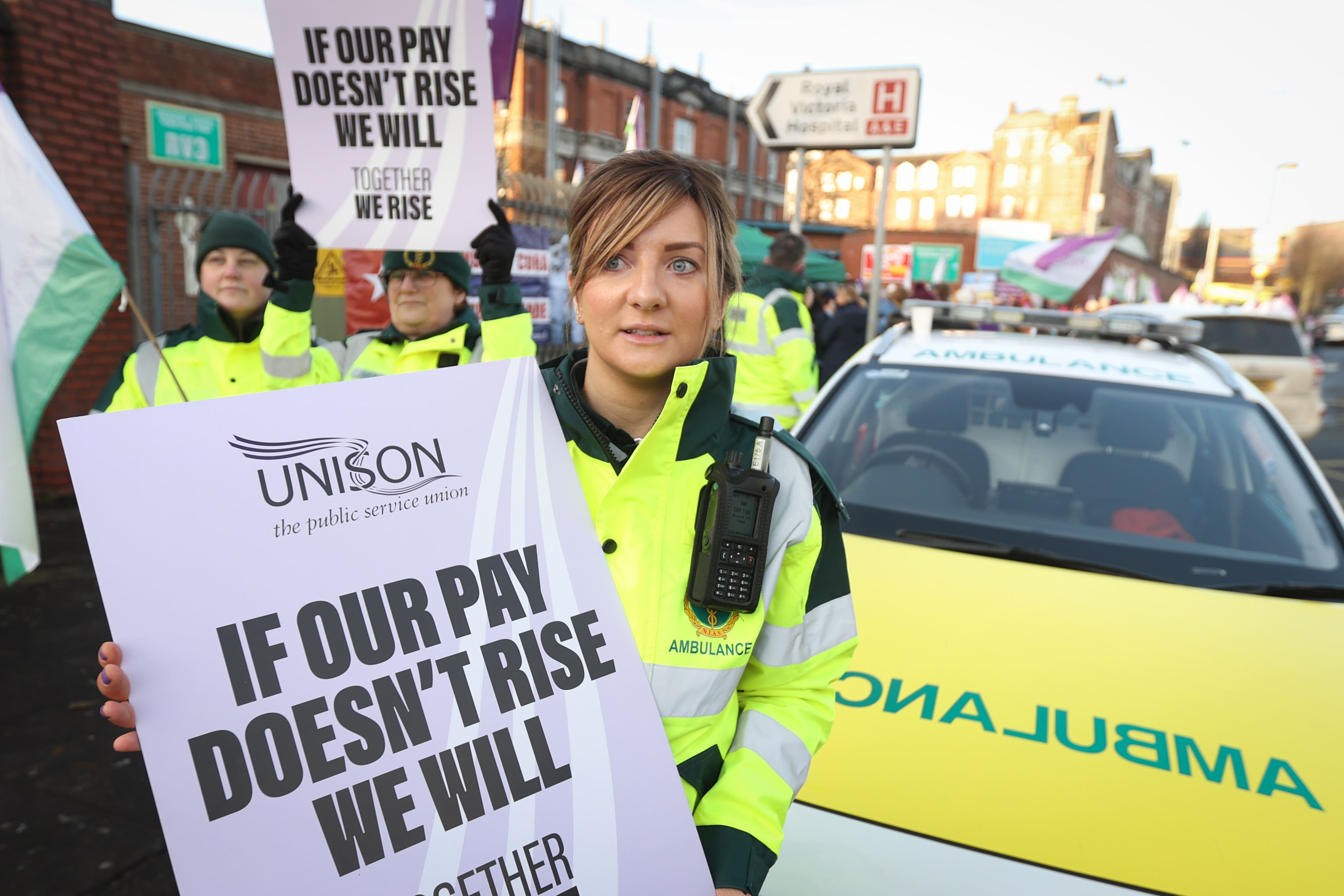Ambulance strikes suspended after government agrees to pay talks
Ambulance workers were set to walk out on 6 and 8 March

Your support helps us to tell the story
From reproductive rights to climate change to Big Tech, The Independent is on the ground when the story is developing. Whether it's investigating the financials of Elon Musk's pro-Trump PAC or producing our latest documentary, 'The A Word', which shines a light on the American women fighting for reproductive rights, we know how important it is to parse out the facts from the messaging.
At such a critical moment in US history, we need reporters on the ground. Your donation allows us to keep sending journalists to speak to both sides of the story.
The Independent is trusted by Americans across the entire political spectrum. And unlike many other quality news outlets, we choose not to lock Americans out of our reporting and analysis with paywalls. We believe quality journalism should be available to everyone, paid for by those who can afford it.
Your support makes all the difference.Major ambulance strikes scheduled for next week have been suspended after the government agreed to discuss pay for this year, unions have said.
Tens of thousands of key workers had been due to walk out on Monday and Wednesday, but GMB and Unison have deferred their plans after ministers said cash is available for potential pay rises covering both this year and next.
GMB national secretary Rachel Harrison said this marks a “huge shift” in the government’s position in the negotiations.
She said: “GMB ambulance workers announced a tightening of the derogations for cover on strike days.
“Less than 24 hours later we received a letter from the Secretary of State for Health, Steve Barclay, inviting us and other unions to pay talks.
“This is a huge shift from the government, who for months have refused to consider negotiations on pay. Now they are saying they are willing to sit down and talk.
“The government has given assurances of additional cash for both years above existing budgets and that any deal will respect the existing Agenda for Change structure.
“GMB’s ambulance workers have agreed to suspend industrial action so talks can begin – however the strike will return with a vengeance should talks break down.”
GMB added that the Department for Health and Social Care (DHSC) has also said it is open to discussions about improvements to ambulance workers’ terms and conditions.
Writing on Twitter, the union also thanked ambulance workers for “standing strong” along with the “fantastic support of the public” for convincing ministers to “talk pay”.
Planned action by GMB across England would have involved 13,000 workers, while thousands more were due to join picket lines as part of Unison action.
GMB members working for the Welsh Ambulance service have also agreed to suspend action on Monday for further talks with the trust and the Welsh government.
Unison’s Sara Gorton said that strike action would resume if discussions – which are due to take place early next week – are not “meaningful”.
She said: “Proper pay talks should have started months ago, long before the first strike was called. That would have avoided days of disruption for the NHS and its patients.
“Whether the talks signal the beginning of the end of the current dispute will emerge in the coming days. If a deal can be reached, strikes can end and everyone can work together again to ensure the NHS gets back on track.
“However, when we get in the room, we’ll quickly learn whether the talks can be meaningful. If not, Unison will be forced to resume strike action. Nobody wants that.”
The Chartered Society of Physiotherapy (CSP) is also suspending planned strikes after agreeing to enter talks with the government.
The union had planned walkouts at 56 trusts on March 22, but now expects negotiations to begin in the coming days.
Elaine Sparkes, assistant director of the CSP, said: “We’ve been calling for meaningful talks for months and always said we would suspend action if they took place.
“We therefore welcome these discussions and hope they can conclude with a fair deal that helps our members manage the cost of living crisis and enables the NHS to recruit and retain the staff it needs.”
Join our commenting forum
Join thought-provoking conversations, follow other Independent readers and see their replies
0Comments